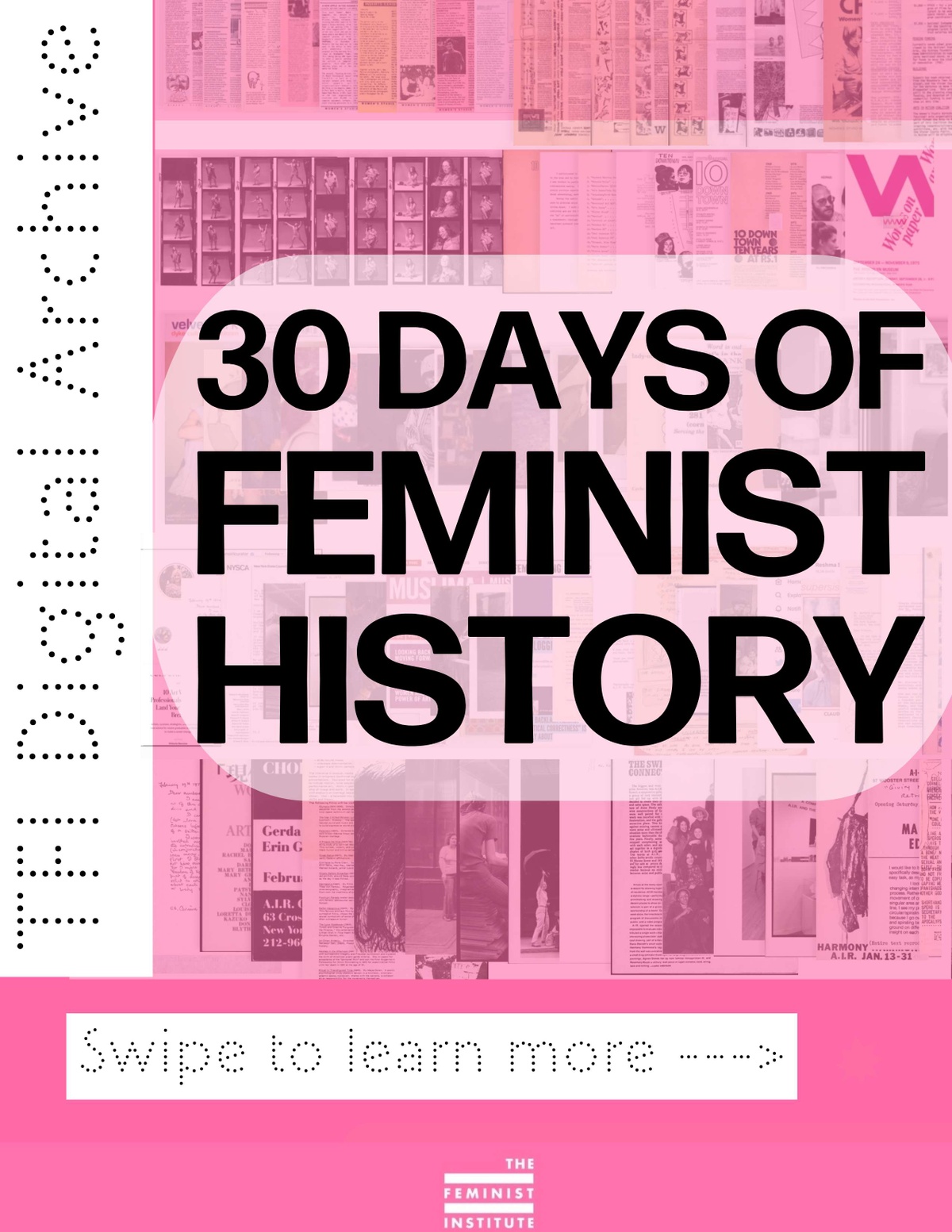Project Feature: supersisters™ — Part 1
Emily Whitcomb Nov 4, 2022 3 Minute Read
This post is the first in a series I will be writing on the partnership between supersisters™ and The Feminist Institute.
supersisters™ Origin Story
supersisters™ was founded by sisters Lois Rich and Barbara Egerman when Lois’ daughter Melissa asked her why there weren’t women on the trading cards she collected. In 1979, Melissa’s question was answered. Seventy-two cards, each dedicated to a woman who pioneered in her respective field, were released and available for mail order. These cards were available as educational materials for classrooms.
Forty-three years later and supersisters™ is relaunching in light of the developments for women and women’s rights since supersisters™’ original debut. Those first seventy-two women’s impact is still felt today, paving the way for the next generations of women who might now become a part of the new set of supersisters™.
TFI and supersisters™ Collaboration
TFI visited Melissa and Lois’ city of Indianapolis to begin cataloguing and digitizing the boxes upon boxes of materials kept since the start of the project. Many of those materials hadn’t seen the light of day in decades. The sorting process, the discovery of knick-knacks pressed between correspondence and documentation, and conversation upon conversation with Melissa and Lois enriched the week spent in Indy’s Maven Space.
Maven Space, run by and for women, hosted TFI and supersisters™ during their week of work and hosted their showcase.
The first part of the week was spent sorting through the boxes known to contain correspondence and documentation for each of the original supersisters™, sorting between the original seventy-two and the second set of supersisters™ that never got published, and sorting through the various responses declining the invitation to become a supersister™.

In addition to TFI scanning equipment, IUPUI’s Center for Digital Scholarship opened their facilities for oversized materials. The rest of the materials were digitized during TFI’s time at Maven Space.
During sorting and digitizing, materials were set aside to showcase at the end of the week, such as the documentation for the original supersisters, a binder of interesting correspondence and ephemera, a binder of declines, original merchandise, educational packets, and the red suitcases in which newspapers and magazine were kept. The showcase was open to people connected with Maven Space or supersisters™ and opened the opportunity for then to speak with Melissa, Lois, and the TFI team.

Increasing Access to Feminist Materials
TFI and supersisters™ align in our shared mission to increase access to feminist materials. supersisters™ began their project to spread information, educate young people, and empower young women by letting them see the women who’d come before them. Our commitment to archiving as a post-custodial organization guarantees that the original materials we digitize will be returned to supersisters™ so that their own work can continue. This facet of our policy aligns with our feminist ethics of care, which directs the way in which we work with partners like supersisters™.
As TFI’s intern living in Indianapolis, I will continue to digitize materials left in Indianapolis. Keep an eye out for the next post in this series, where I will talk about our feminist ethics of care according to our Code of Ethics and how that relates to my experience as an intern with TFI and partner with supersisters™!

